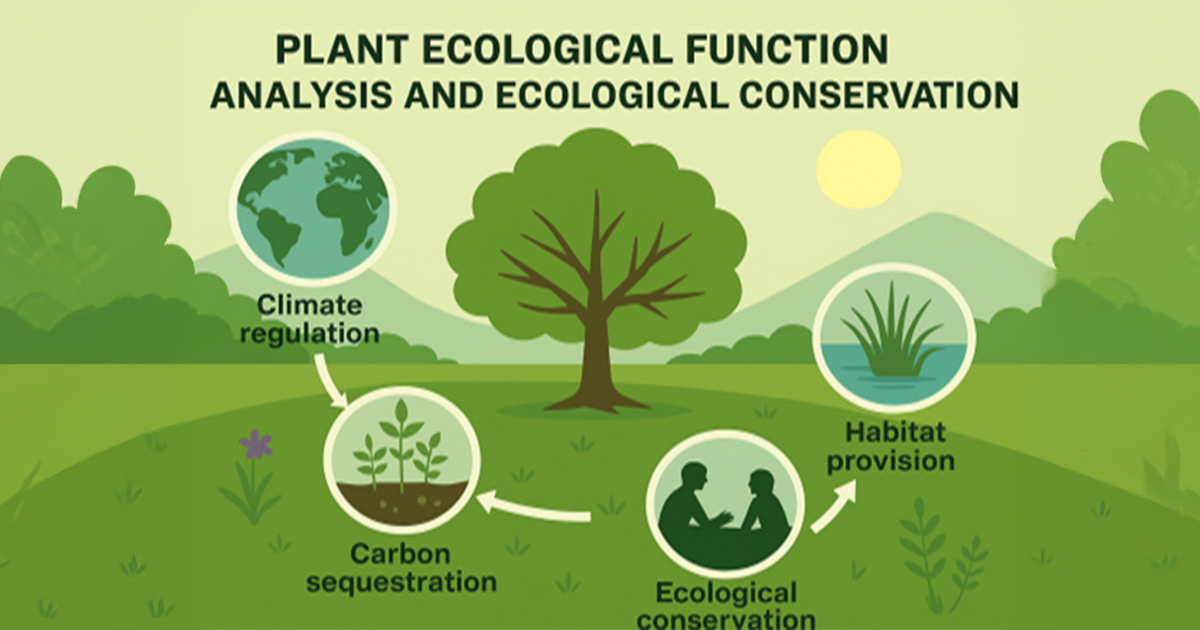Plant Ecological Function Research and Ecological Conservation
A special issue of Sustainability (ISSN 2071-1050). This special issue belongs to the section "Sustainability, Biodiversity and Conservation".
Deadline for manuscript submissions: 31 August 2026 | Viewed by 83

Special Issue Editors
Interests: plant ecology; biodiversity conservation; invasive species; climate change; species distribution; habitat restoration; GIS and remote sensing; ecological resilience
Interests: species interactions; biodiversity conservation; freshwater ecology; marine ecology; ecological modeling; population dynamics; sustainable resource management
Special Issue Information
Dear Colleagues,
Plants play a central role in the structure and function of terrestrial ecosystems by sustaining biodiversity and delivering essential ecosystem services such as climate regulation, purification of air, production of food and medicine. The ecological role of plants is yet underrepresented in sustainability discourse. The aim of this Special Issue is to highlight the critical roles that plants play in ecosystem resilience and to advance conservation strategies for them in the face of climate change on a global scale.
Submissions addressing how plant characteristics, interactions, and distributions affect ecosystem function, especially in response to stresses including invasive species, land-use changes, and climate change are encouraged for this issue. Among the topics of particular interest are the functional roles of plants in ecosystem dynamics, the effects of people on plant communities, and restoration strategies that give preference to native species. We seek papers that combine traditional knowledge gathering from indigenous people with modern techniques like remote sensing, modeling, and GIS.
This issue encourages original research, reviews, and viewpoints based on empirical, experimental, or theoretical work. It helps to advance sustainability research and biodiversity policy by linking ecological theory and applied conservation. Finally, the collection is intended to promote new, plant-centered approaches to environmental stewardship, as well as to place botanical knowledge at the center of sustainable land management and ecosystem restoration.
Dr. Kishwar Ali
Dr. Mark Abrahams
Guest Editors
Manuscript Submission Information
Manuscripts should be submitted online at www.mdpi.com by registering and logging in to this website. Once you are registered, click here to go to the submission form. Manuscripts can be submitted until the deadline. All submissions that pass pre-check are peer-reviewed. Accepted papers will be published continuously in the journal (as soon as accepted) and will be listed together on the special issue website. Research articles, review articles as well as short communications are invited. For planned papers, a title and short abstract (about 100 words) can be sent to the Editorial Office for announcement on this website.
Submitted manuscripts should not have been published previously, nor be under consideration for publication elsewhere (except conference proceedings papers). All manuscripts are thoroughly refereed through a single-blind peer-review process. A guide for authors and other relevant information for submission of manuscripts is available on the Instructions for Authors page. Sustainability is an international peer-reviewed open access semimonthly journal published by MDPI.
Please visit the Instructions for Authors page before submitting a manuscript. The Article Processing Charge (APC) for publication in this open access journal is 2400 CHF (Swiss Francs). Submitted papers should be well formatted and use good English. Authors may use MDPI's English editing service prior to publication or during author revisions.
Keywords
- plant ecological function
- biodiversity conservation
- ecosystem services
- ecological restoration
- invasive species management
- climate resilience
- ethnobotany and culture
- carbon sequestration
- habitat dynamics
- nature-based solutions
Benefits of Publishing in a Special Issue
- Ease of navigation: Grouping papers by topic helps scholars navigate broad scope journals more efficiently.
- Greater discoverability: Special Issues support the reach and impact of scientific research. Articles in Special Issues are more discoverable and cited more frequently.
- Expansion of research network: Special Issues facilitate connections among authors, fostering scientific collaborations.
- External promotion: Articles in Special Issues are often promoted through the journal's social media, increasing their visibility.
- Reprint: MDPI Books provides the opportunity to republish successful Special Issues in book format, both online and in print.
Further information on MDPI's Special Issue policies can be found here.






